Making state management
React Summit 2024
David Khourshid · @davidkpiano
stately.ai
intelligent ✨
Why David likes
React Summit 2024
David Khourshid · @davidkpiano
stately.ai
state machines ✨
Making state management
so much
stately.ai
stately.ai
stately.ai

function Todos(props) {
const [todos, setTodos] = useState(props.todos)
const [selectedTodo, setSelectedTodo] = useState(null)
// ...
}
function Todo(props) {
const [title, setTitle] = useState(props.todo.title)
const [content, setContent] = useState(props.todo.content)
const [completed, setCompleted] = useState(props.todo.completed)
useEffect(() => {
props.onUpdate({ title, content, completed })
}, [title, content, completed]);
// ...
}





import { createStore } from '@xstate/store';
const store = createStore(
{
todos: [],
selectedTodo: null
},
{
addTodo: {
todos: (ctx, { todo }) => ctx.todos.concat(todo)
},
updateTodo: {
todos: (ctx, { todo }) =>
ctx.todos.map((t) => (t.id === todo.id ? todo : t))
},
selectTodo: {
selectedTodo: (ctx, { todoId }) => todoId
},
toggleTodo: {
todos: (ctx, { todo }) =>
ctx.todos.map((t) =>
t.id === todo.id ? { ...t, completed: !t.completed } : t
)
}
}
);
STORE
npm i @xstate/storeimport { useSelector } from '@xstate/store/react';
import { store } from './store';
function App() {
const todos = useSelector(store, (s) => s.context.todos);
return (
// ...
<button onClick={() => {
store.send({ type: 'addTodo', todo: {/* ... */} })
}}>
New todo
</button>
);
}

Let's talk about AI.
// /api/completion/route.ts
import { StreamingTextResponse, streamText } from 'ai';
import { openai } from '@ai-sdk/openai';
// Allow streaming responses up to 30 seconds
export const maxDuration = 30;
export async function POST(req: Request) {
const { prompt }: { prompt: string } = await req.json();
const result = await streamText({
model: openai('gpt-4-turbo'),
prompt,
});
return new StreamingTextResponse(result.toAIStream());
}
import { useCompletion } from '@ai-sdk/react';
function TodoDescription() {
const {
completion,
input,
handleInputChange,
handleSubmit
} = useCompletion({
api: '/api/completion',
});
return (
<form onSubmit={handleSubmit}>
<input
name="prompt"
value={input}
onChange={handleInputChange}
id="input"
/>
<textarea value={completion} />
<button type="submit">Submit</button>
</form>
);
}
Let's talk about really old AI.

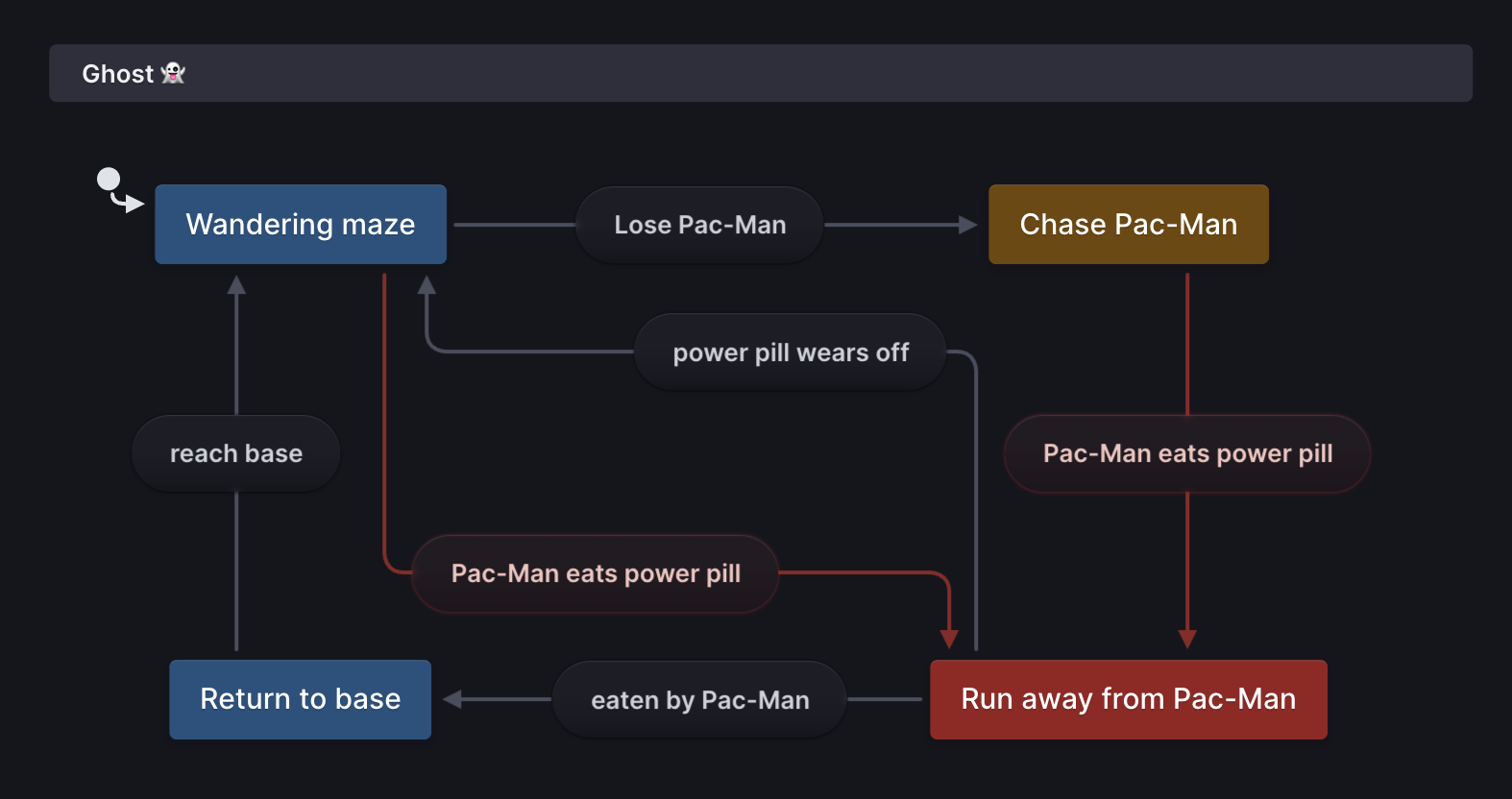
import { createMachine } from "xstate";
export const ghostMachine = createMachine(
{
id: "Ghost 👻",
initial: "Wandering maze",
states: {
"Wandering maze": {
on: {
"Lose Pac-Man": {
target: "Chase Pac-Man",
},
"Pac-Man eats power pill": {
target: "Run away from Pac-Man",
},
},
},
"Chase Pac-Man": {
on: {
"Pac-Man eats power pill": {
target: "Run away from Pac-Man",
},
},
},
"Run away from Pac-Man": {
on: {
"power pill wears off": {
target: "Wandering maze",
},
"eaten by Pac-Man": {
target: "Return to base",
},
},
},
"Return to base": {
on: {
"reach base": {
target: "Wandering maze",
},
},
},
},
}
);

import { createActor } from 'xstate';
import { ghostMachine } from './ghostMachine';
const actor = createActor(ghostMachine);
actor.subscribe(state => {
console.log(state);
});
actor.start();
actor.send({ type: 'Lose Pac-Man' });
// { value: 'Chase Pac-Man', ... }
Users want
intelligent apps
Users want
intelligent apps
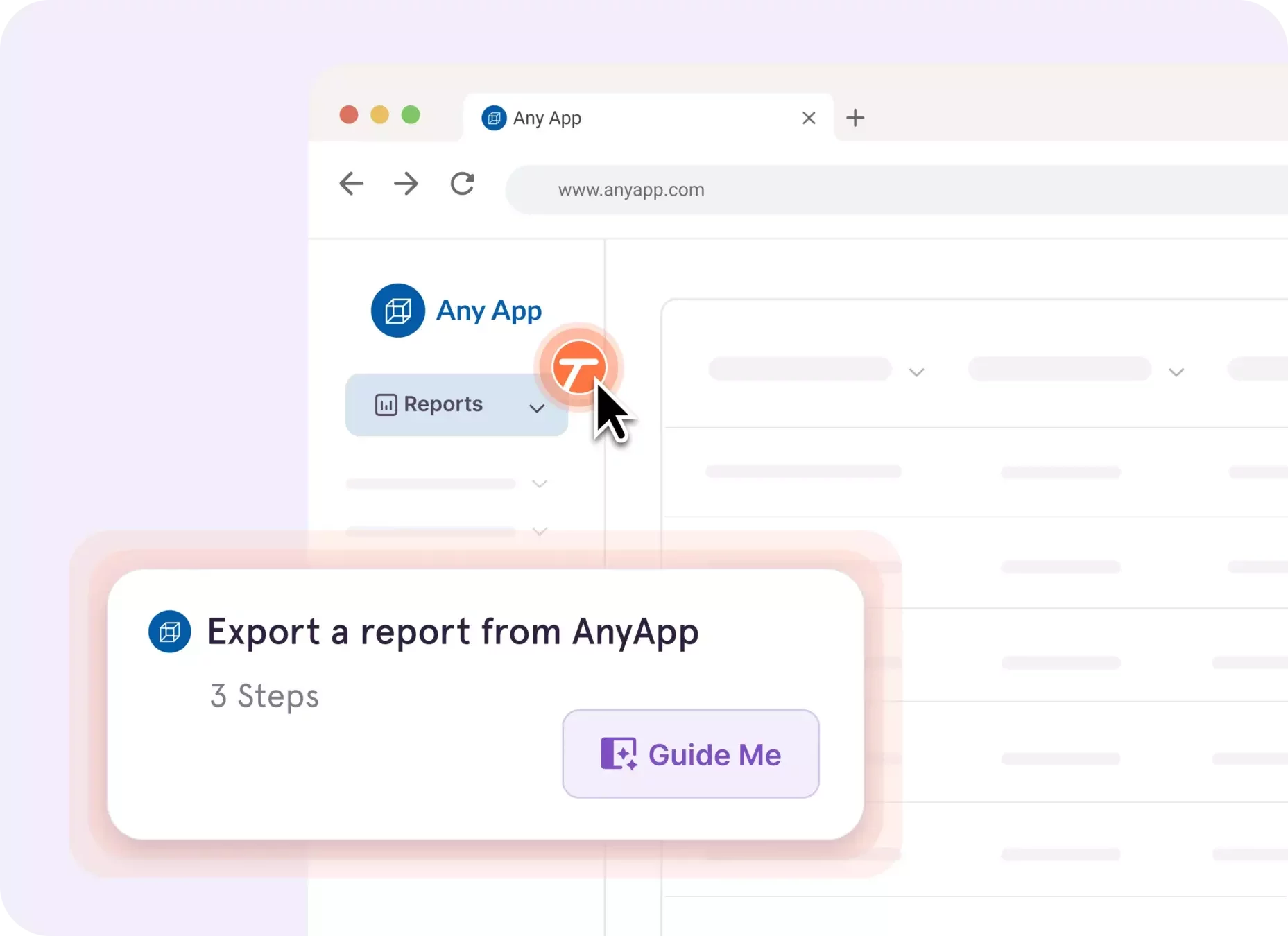
import { z } from 'zod';
import { generateText, tool } from 'ai';
const result = await generateText({
model: openai('gpt-4-turbo'),
tools: {
weather: tool({
description: 'Get the weather in a location',
parameters: z.object({
location: z.string()
.describe('The location to get the weather for'),
}),
execute: async ({ location }) => {
const result = await getWeather(location);
return result;
},
}),
},
prompt: 'Is it going to rain in Amsterdam today?',
});
LLMs are
not enough
Non-deterministic
Not easily explainable
Confidently wrong

I had an idea.
What if we used LLMs
to navigate a state machine
and decide which event(s) to cause
to achieve a goal?
npm i @statelyai/agent@beta
(it's completely open-source)
What is an agent?
☑️ Performs tasks → accomplish goal
🔭 Observes → learn environment
⚠️ Receives feedback → improve over time
import { createAgent } from '@statelyai/agent';
import { openai } from '@ai-sdk/openai';
import { z } from 'zod';
import { todosMachine } from './todosMachine';
const agent = createAgent({
model: openai('gpt-4-turbo'),
name: 'todos',
events: {
'todo.add': z.object({ … }).describe('Adds a new todo'),
// …
}
});
// ...
const plan = await agent.decide({
goal,
state,
machine: todosMachine,
});
plan?.nextEvent;
// {
// type: 'todo.add',
// ...
// }

AGENT
npm i @statelyai/agent
Demo
Input
Output
Generative / creative
Input
Output
Goal
Start
Generative / creative
Agentic / goal-oriented
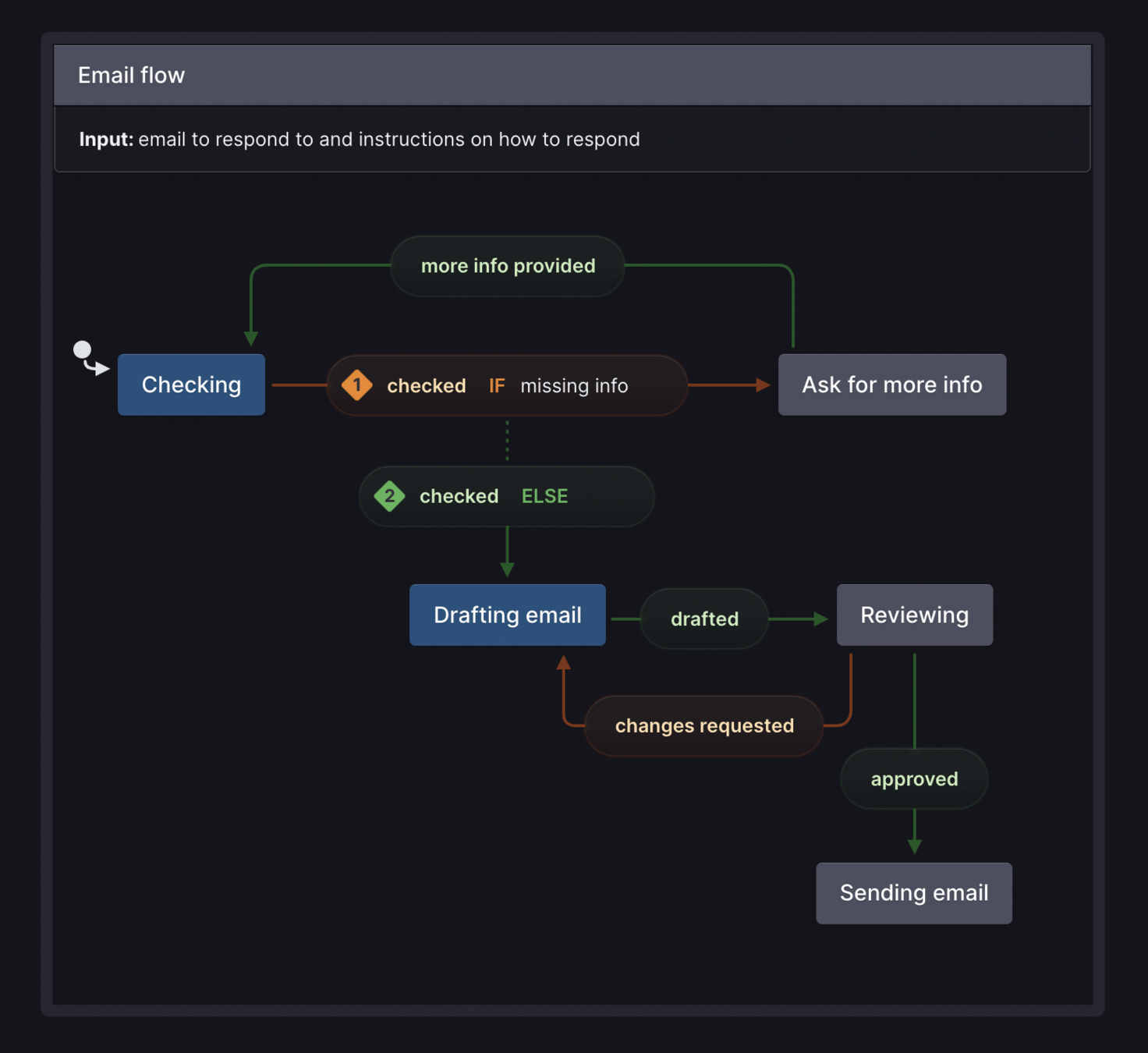
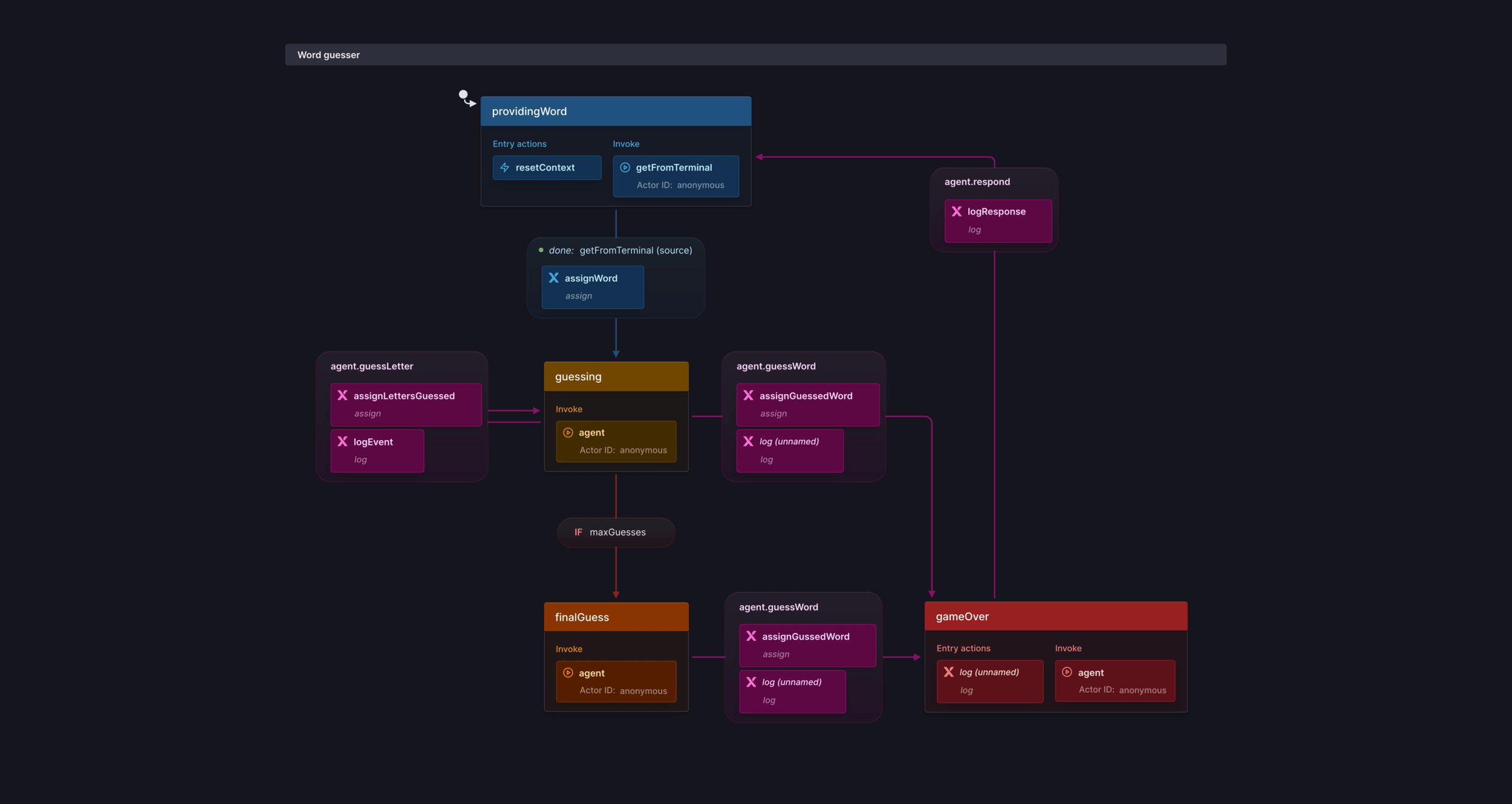
Demo
Reinforcement learning (RL)
🤖 An intelligent agent learns
🔮 → through trial and error
💥 → how to take actions inside an environment
🌟 → to maximize a future reward
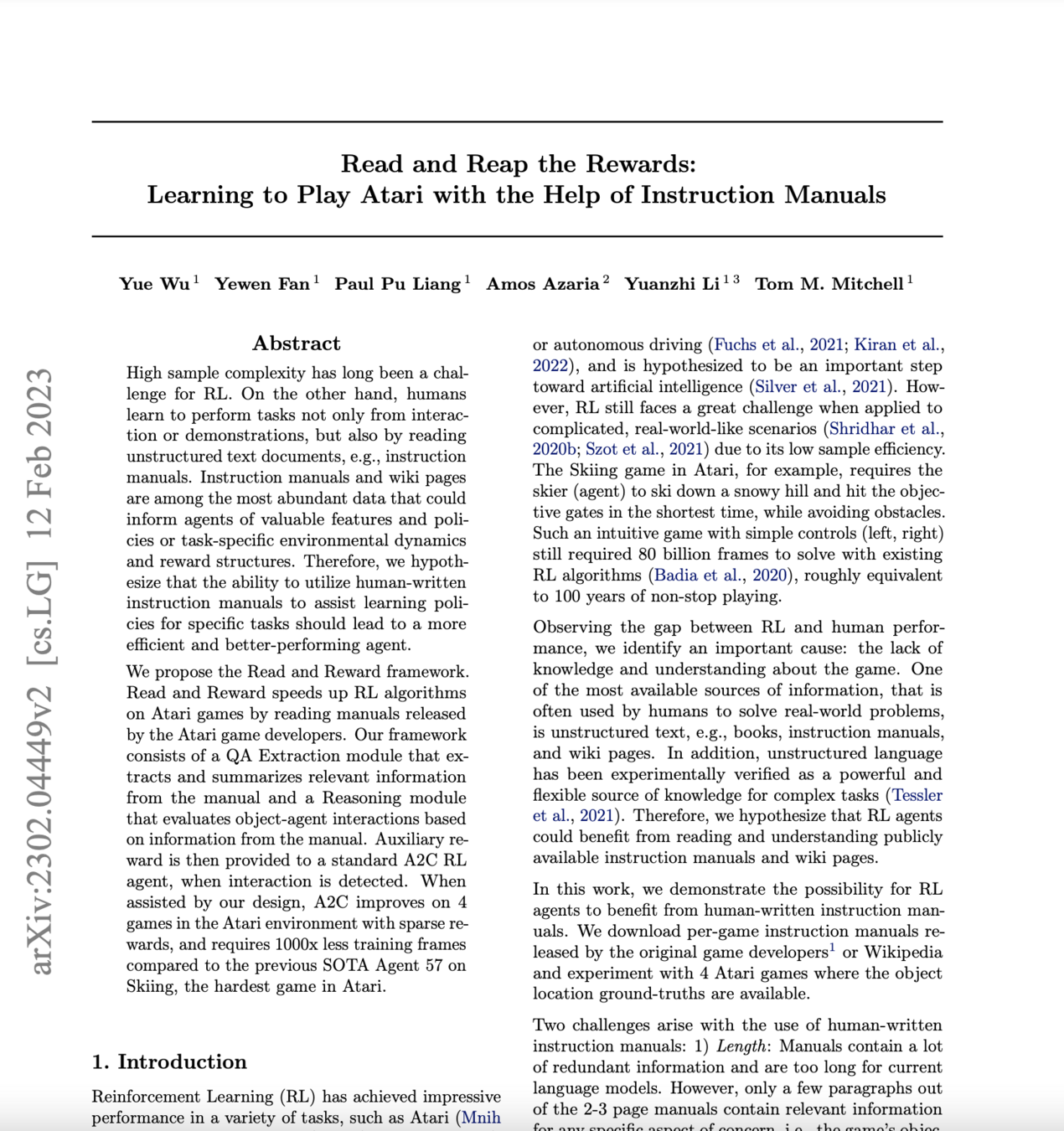

RTFM to learn faster
tl;dr
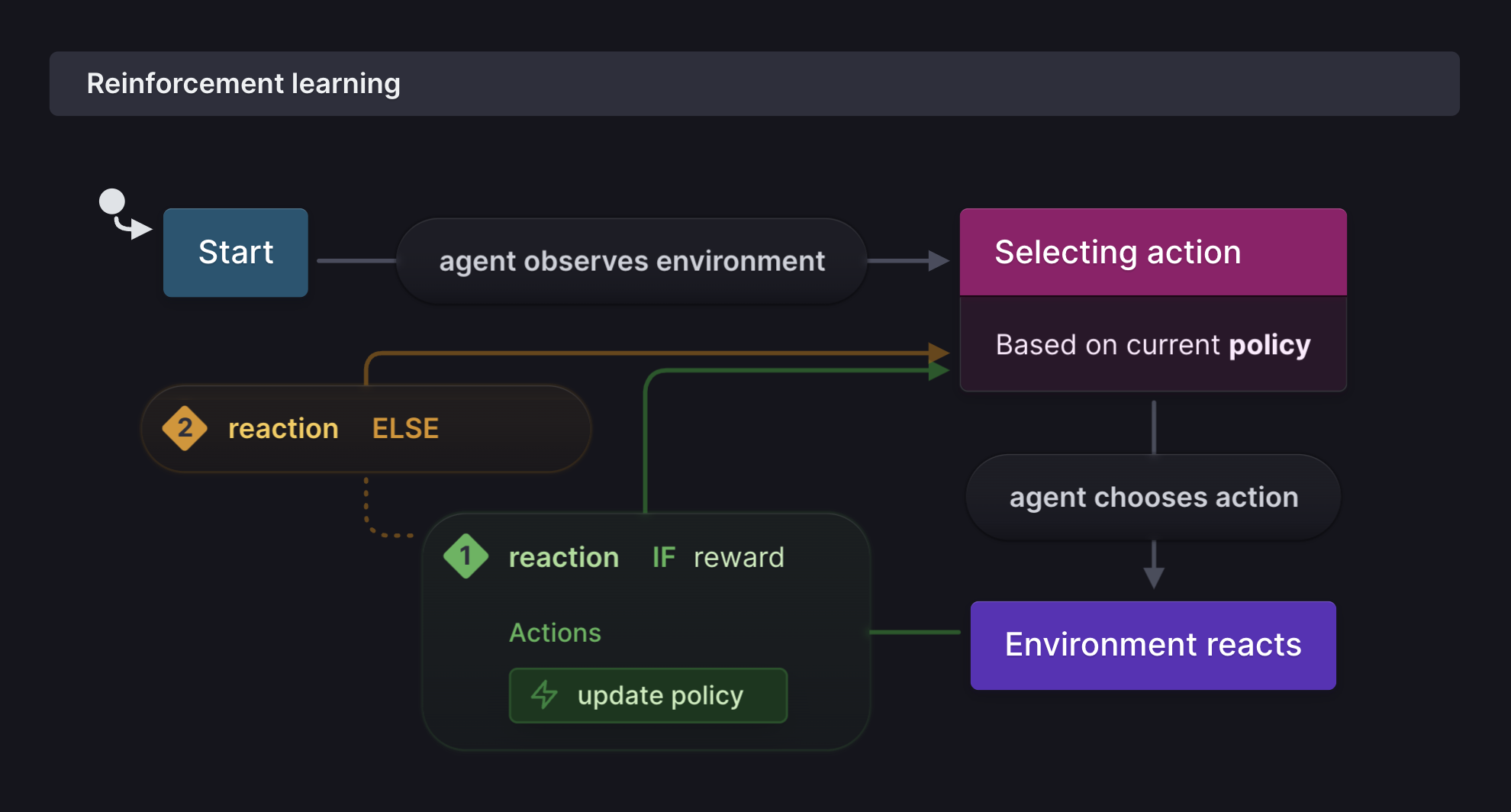




Environment


Normal mode

Scatter mode



Agent

Policy


Reward

+1
-100

🟡 + 🍒 =
🟡 + 👻 =
Credit assignment
+1
-100
Reinforcement learning
with human feedback (RLHF)
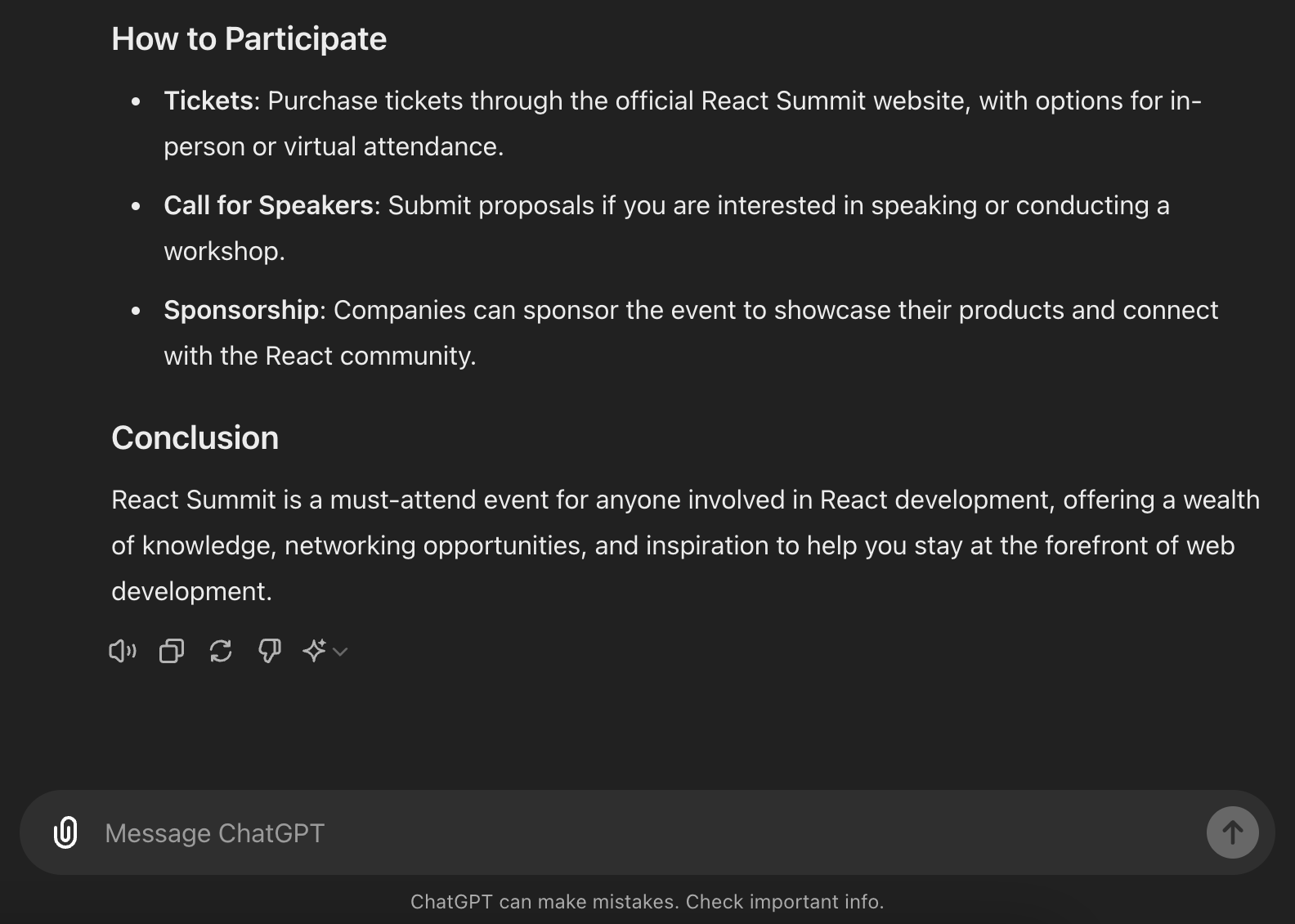

data
- Observed state transitions due to events;
causal relationship
- Past interactions with the agent;
human and assistant messages
- Previous planned sequences of events;
potential courses of action to reach a goal
- Value of past actions in plain language;
reward values if applicable
-
Observations
-
Messages
-
Plans
-
Feedback
@statelyai/agentCreating intelligent agents
→ State machines
Determinism, explainability
→ Reinforcement learning
Exploration, exploitation
→ Large language models
Interpretation, creativity
Okay, let's do this.
import { getShortestPaths } from '@xstate/graph';
import { someMachine } from './someMachine';
// Finds all the shortest paths from
// initial state to other states
const shortestPaths = getShortestPaths(someMachine, {
events: [
{ type: 'setName', name: '' },
{ type: 'setName', name: 'reallyReallyLongNameProbablyDutch' },
{ type: 'setAge', age: -1 },
{ type: 'setAge', age: 30 },
// ...
]
});
GRAPH
npm i @xstate/graph
Edge weight
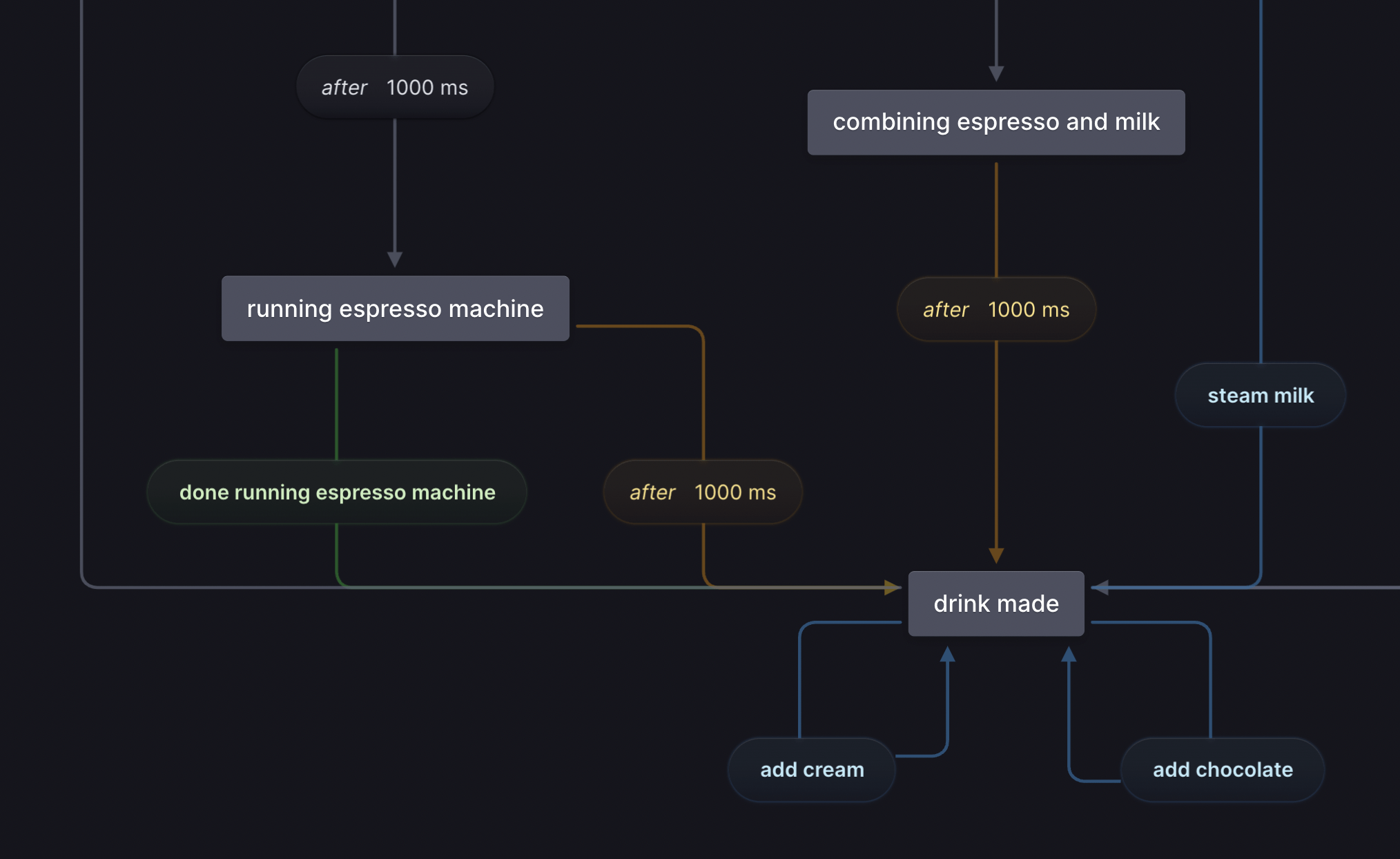
Espresso machine ☕️

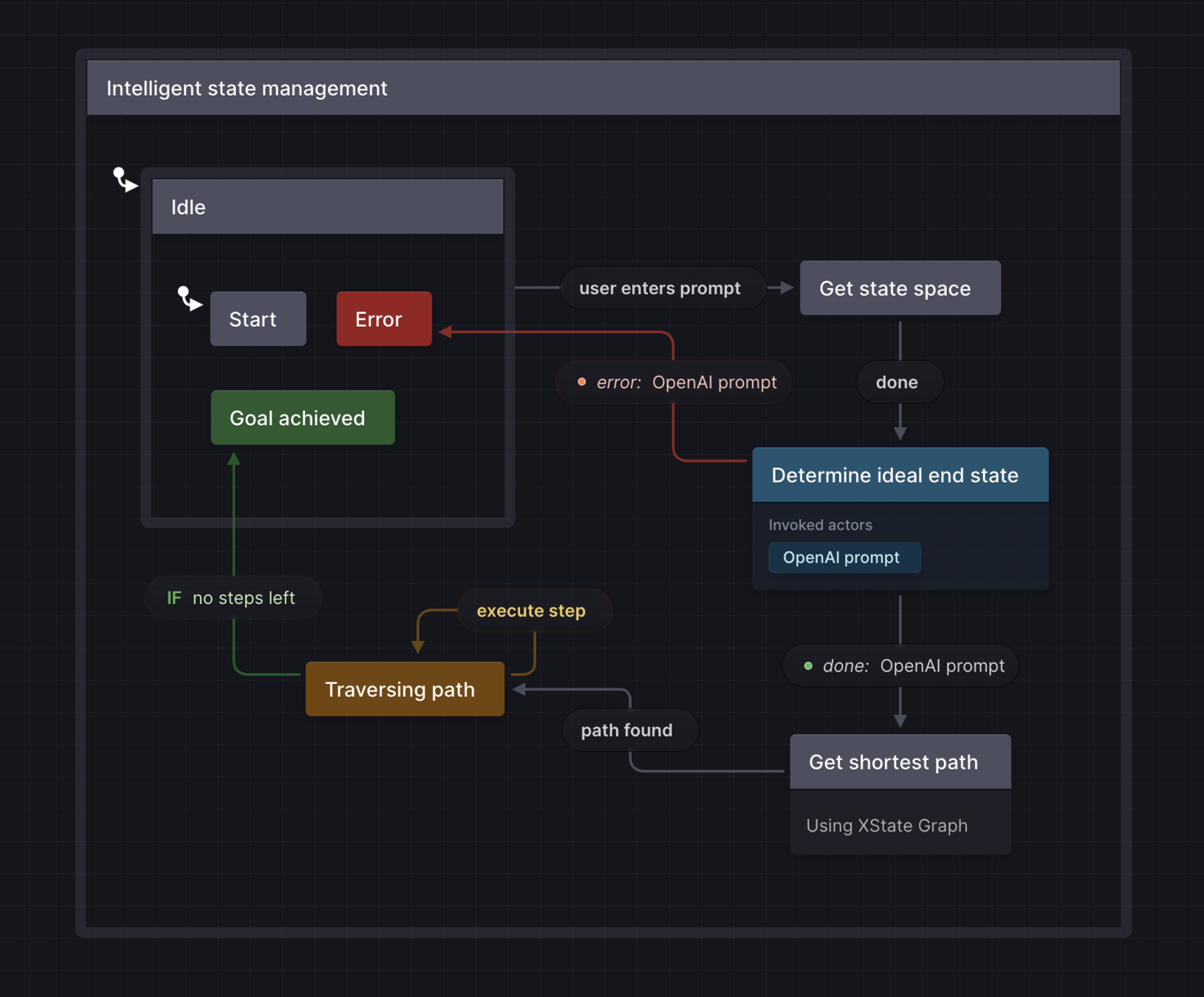
Demo
Learnings
LLMs are unpredictable
State machines are predictable
Declarative logic + LLMs + RL =
intelligent state management
🎲
🤖
✨
no matter which state management
library you use.
State machines are a great way to think about app logic
Dankjewel React Summit!

React Summit 2024
David Khourshid · @davidkpiano
stately.ai

